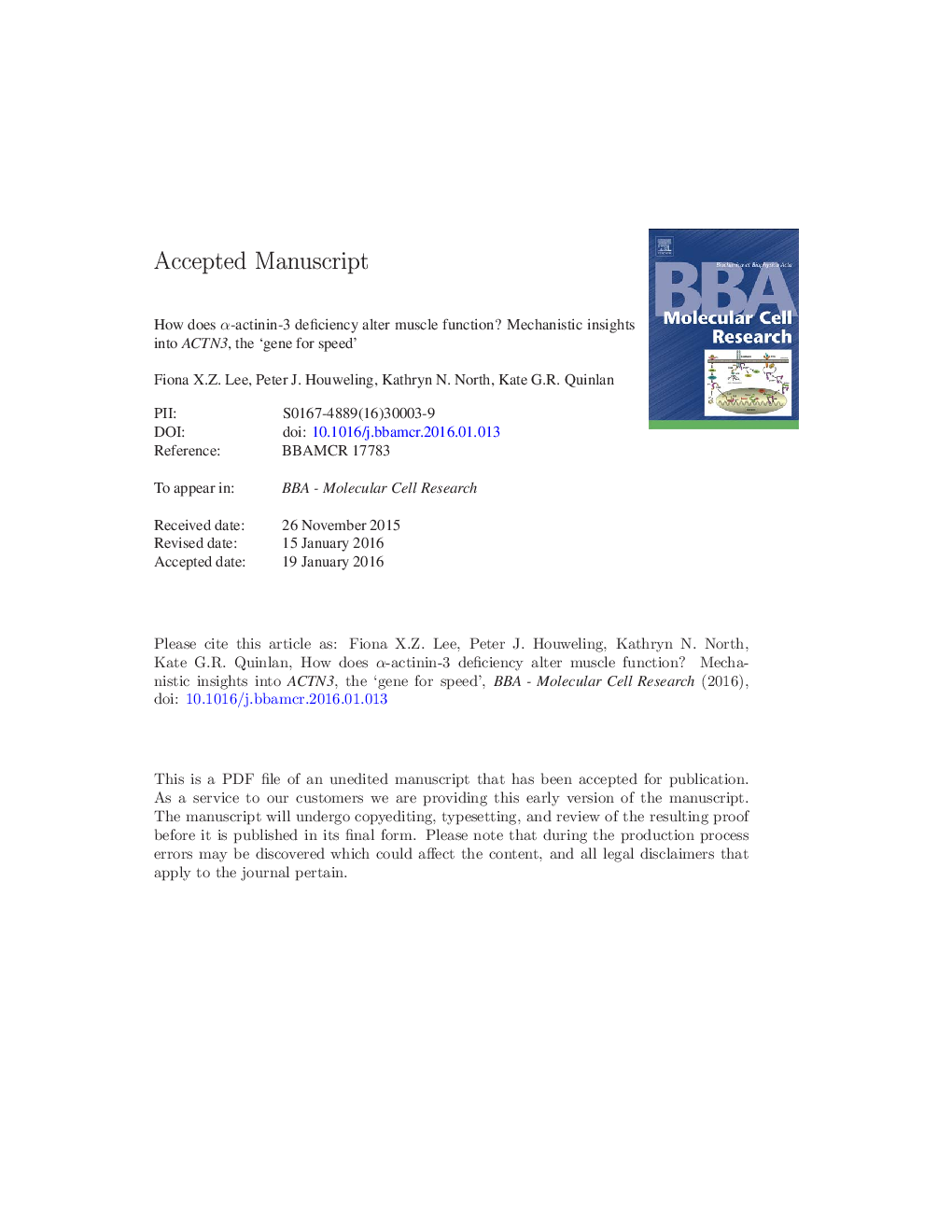| Article ID | Journal | Published Year | Pages | File Type |
|---|---|---|---|---|
| 10801759 | Biochimica et Biophysica Acta (BBA) - Molecular Cell Research | 2016 | 24 Pages |
Abstract
An estimated 1.5 billion people worldwide are deficient in the skeletal muscle protein α-actinin-3 due to homozygosity for the common ACTN3 R577X polymorphism. α-Actinin-3 deficiency influences muscle performance in elite athletes and the general population. The sarcomeric α-actinins were originally characterised as scaffold proteins at the muscle Z-line. Through studying the Actn3 knockout mouse and α-actinin-3 deficient humans, significant progress has been made in understanding how ACTN3 genotype alters muscle function, leading to an appreciation of the diverse roles that α-actinins play in muscle. The α-actinins interact with a number of partner proteins, which broadly fall into three biological pathways-structural, metabolic and signalling. Differences in functioning of these pathways have been identified in α-actinin-3 deficient muscle that together contributes to altered muscle performance in mice and humans. Here we discuss new insights that have been made in understanding the molecular mechanisms that underlie the consequences of α-actinin-3 deficiency.
Keywords
GPHNADH-trRYR1EDLMyHCNFATCCOMCADLOFDHPRSERCA1SDHGAPDH3-hydroxyacyl-CoA dehydrogenaseFBP1Adenosine TriphosphateATPALPloss of functionextensor digitorum longusCSAProtein interactionstwo-dimensionalSarcoplasmic reticulumZASPMyosin heavy chainMedium chain acyl-CoA dehydrogenasesuccinate dehydrogenaseCitrate synthasecytochrome c oxidaseMuscle functionAthletic Performancelactate dehydrogenaseLDHcross-sectional areamolecular mechanismElectron microscopyknockoutwild typehexokinaseglyceraldehyde-3-phosphate dehydrogenaseglycogen synthase Glycogen phosphorylase
Related Topics
Life Sciences
Biochemistry, Genetics and Molecular Biology
Biochemistry
Authors
Fiona X.Z. Lee, Peter J. Houweling, Kathryn N. North, Kate G.R. Quinlan,
